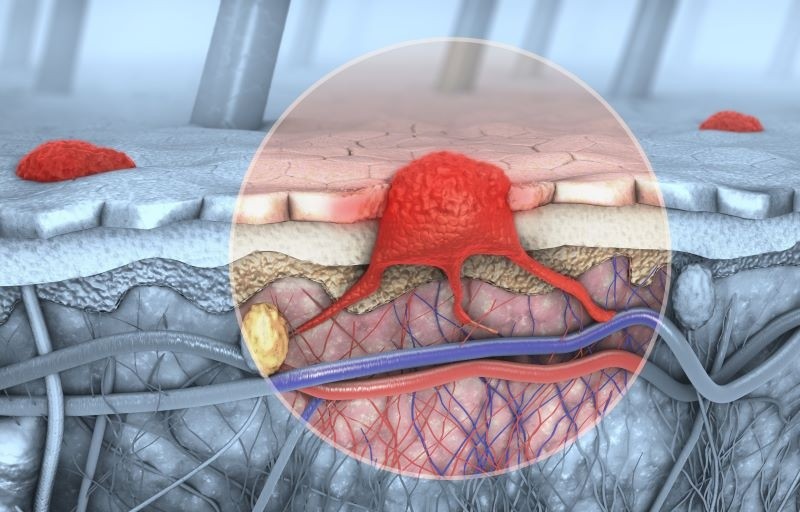Metabolic changes associated with progression-free survival in patients receiving pembrolizumab
By Elana Gotkine HealthDay Reporter
MONDAY, Jan. 29, 2024 (HealthDay News) — For patients with advanced melanoma, early 18F-fluorodeoxyglucose (FDG) positron emission tomography (PET)/computed tomography (CT) imaging can identify metabolic changes that may predict response to pembrolizumab, according to a study published online Jan. 24 in Clinical Cancer Research.
Thomas M. Anderson, M.D., from the Perelman School of Medicine at the University of Pennsylvania in Philadelphia, and colleagues prospectively enrolled 19 patients with advanced melanoma scheduled to receive pembrolizumab. At baseline and approximately one week after starting treatment, FDG PET/CT imaging was performed. These scans were assessed for changes in the maximum standardized uptake value (SUVmax); receiver operating curve analysis was used to identify thresholds, with metabolic flare (MF) defined as >70 percent increase in tumor SUVmax and metabolic response (MR) defined as >30 percent decrease in tumor SUVmax.
The researchers found that six of 11 responders and zero of eight nonresponders had an MF or MR, with an objective response rate of 100 and 38 percent in the MF-MR group and the stable metabolism (SM) groups, respectively. There was an association seen for MF or MR with T-cell reinvigoration in the peripheral blood and immune infiltration in the tumor. Overall survival at three years was 83 and 62 percent in the MF-MR and SM groups, respectively. The median progression-free survival was >38 and 2.8 months in the MF-MR and SM groups, respectively.
“An MF or MR was predictive of response, and strongly correlated with progression-free survival, suggesting that response assessment by early FDG PET/CT is robust,” the authors write.
Several authors disclosed ties to pharmaceutical companies, including Merck, which manufactures pembrolizumab and funded the study.
Abstract/Full Text (subscription or payment may be required)
Copyright © 2024 HealthDay. All rights reserved.








